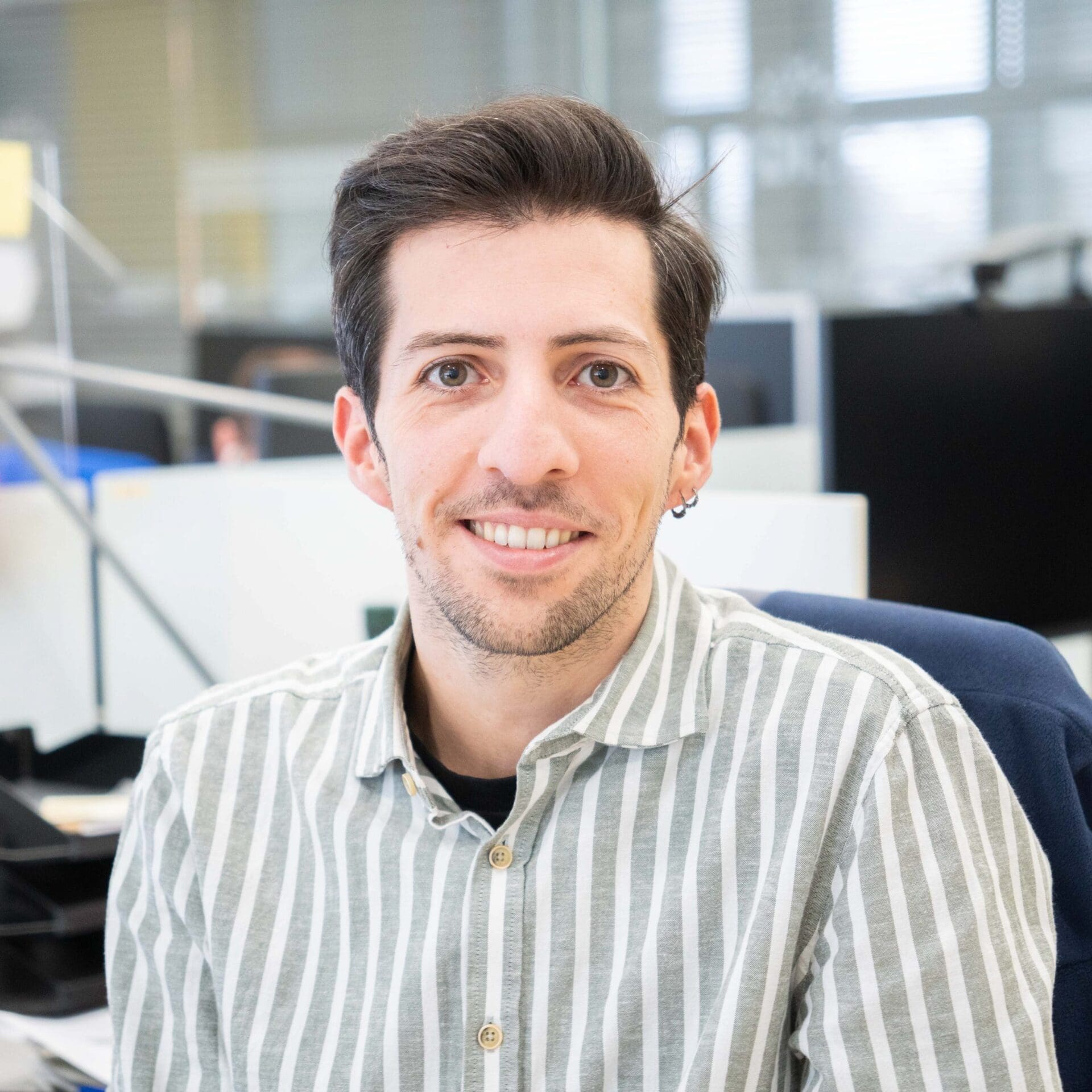Dr. Albert Solé Daura
Junior Leader "la Caixa"
Dr. Albert Solé-Daura obtained his Ph.D. from Rovira i Virgili University (URV, Tarragona, Spain) in 2020, under the supervision of Profs. Jorge J. Carbó and Josep M. Poblet. His Ph.D. research focused on the computational modeling of the reactivity and dynamic properties of polyoxometalates. Subsequently, he joined the group led by Dr. Caroline Mellot-Draznieks at Collège de France (Paris, France) as a postdoctoral research associate. There, he worked with Dr. Caroline Mellot-Draznieks on modeling photo- and electrocatalytic CO2-reduction processes, primarily mediated by transition-metal complexes, porous and host-guest materials.
In 2022, Dr. Solé-Daura was awarded a Margarita Salas Grant, which he used to spend a year in the group of Dr. Bernd Ensing at University of Amsterdam (Amsterdam, The Netherlands). During this time, he applied DFT-based Molecular Dynamics simulations in conjunction with enhanced-sampling methods to investigate complex reaction mechanisms within an explicit environment.
After a brief return to URV, he joined the group of Prof. Maseras in January 2024 as a postdoctoral researcher. He is performing DFT calculations on photocatalytic processes.
- University of Origin: Universitat Rovira i Virgili
- Area: Research
- Research Group/s: Dr. Albert Solé-Daura
- Phone: +34 977 920 200 (ext. 307)
- E-mail: asole@iciq.es
Other: Dr. Albert Solé-Daura's staff:

Let's create a brighter future
Join our team to work with renowned researchers, tackle groundbreaking
projects and contribute to meaningful scientific advancements
















